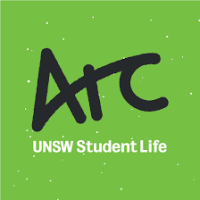If you have received a notice of allegation, you will be asked to either attend a meeting or provide a written submission. This is your opportunity to explain your side of the story.
In both instances you need to:
- Read through the UNSW Misconduct and Plagiarism Procedures
- Ask for a copy of the Turnitin report! You cannot respond to an allegation if you do not know what the problem is.
- Go through the report and identify instances that have been detected as similar.
Do you agree with the allegation?
If yes, apologise!
Recognise (and explain) what you did and how it happened. You need to demonstrate that you understand what plagiarism is and the importance of academic integrity. The investigator needs to know that you know what you did wrong so you can learn and not repeat those mistakes.
Remember plagiarism isn’t always intentional, and that is not what the allegation is saying. In fact, most cases of plagiarism will be accidental. If you’re not sure what plagiarism is (and it can mean a lot of things e.g. did you know you can plagiarise yourself?) you can read up here.
If no, explain why.
In some disciplines, common phrases or scientific language can be hard to paraphrase. However, this is rare. Turnitin is really good at its job and so are academics. If you’ve been pulled up for plagiarism, there’s probably a reason.
We do not advise that you deny the allegation when the report clearly indicates that you have cut and pasted. You need to be honest and realistic about what happened. If you made a mistake, own up to it. The outcome will be better.
If you have gone through the Turnitin report and still disagree with the allegation, contact Legal & Advocacy for advice on how best to present your defence.
Put what happened in context
Detail any mitigating circumstances that may have contributed to your frame of mind at the time. Health issues, family problems, time commitments etc. are relevant factors – while not excusing the behavior, these factors do help the investigator understand your motivation (or lack of it).
International students, if the reason is because you do not have a lot of experience with writing and referencing in Australia, talk about it with the investigator!
If you have gone through these steps and still need to talk to someone, send us an email or contact Arc Reception to book an appointment with us.

